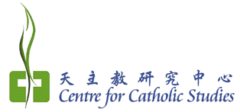Special Feature: Chinese Culture and Catholic Theology
Issue Editor: Antoine Ren
The task of theology is to interpret Revelation rationally, and Revelation is a mystery that people can only understand and accept according to their culture context. The specific task of theology, therefore, is to establish a connection between Revelation and culture. Today, the Chinese culture, while emphasizing its uniqueness, must address its position, role, and responsibility in the world by considering the actual impact and changes brought about by frequent intercultural interactions in globalization and modernization. Consequently, the cultural tensions and relationships between plurality and unity, between the universal and the individual, and between the local and the global are pivotal in shaping the trajectory of contemporary theology. A healthy theology must contribute in a specific inculturated manner from the perspectives of global culture and theology.
The journal is proud to present eight articles in this inaugural issue, including six that directly address the above theme and two other regular contributions. The first six articles delve into the main development stages of Christianity since its entry into China and the ways in which its representatives engaged with Chinese culture. This analysis encompasses a wide historical span, from the various authors of the Nestorian texts in the Tang dynasty to Michele Ruggieri during the Ming dynasty, and extends to the contributions of Bishop Joseph-Martial Mouly during the Qing dynasty to Gong Yan, who initiated the so-called “spirituality of unitive Taiji” (or Interior Taiji) in the present time, and to Chinese youth who are instrumental in the development of a theology of Christ the Brother and an ecclesiology of brotherhood. Though the other two Bible-related essays do not address our selected theme, they can inspire reflection on the relationship between Chinese culture and Catholic theology.


